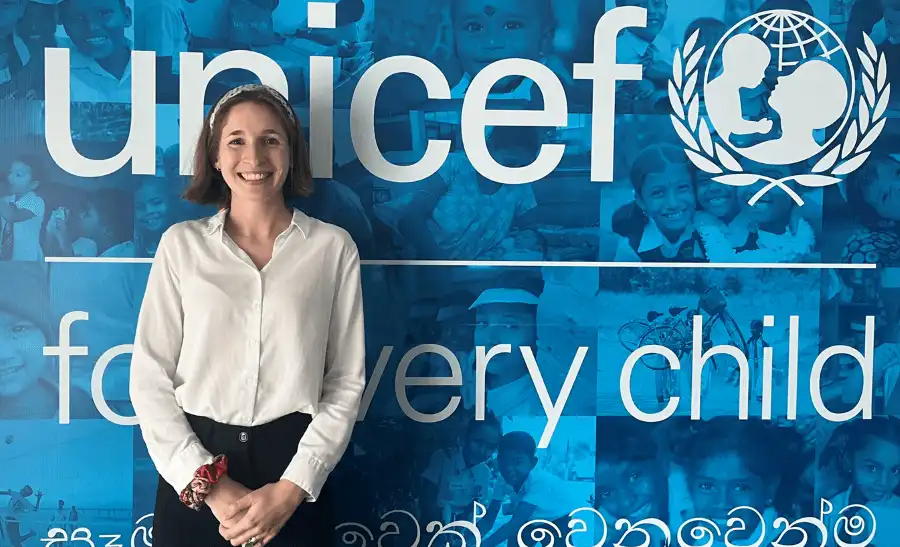Home>Camille, Child Protection Specialist at UNICEF
15.05.2025
Camille, Child Protection Specialist at UNICEF

Camille Neidhardt has graduated in Human Rights and Humanitarian Action, dual degree with the London School of Economics (LSE) in Development Management. Coming from France, Camille is a UNV Child Protection Specialist with UNICEF Sri Lanka.
What are your main responsibilities?
I co-lead the professionalisation of the social service workforce and support the implementation of alternative care policies. I also oversee mental health and psychosocial support (MHPSS) programs designed to safeguard vulnerable children, manage research projects on juvenile justice and violence against children, and translate data into actionable insights. Additionally, I provide technical guidance to enhance inclusive access to justice, strengthen violence prevention efforts, and coordinate with stakeholders at both the national and community levels.
How did you prepare for this job?
I built a solid foundation for my current role through a combination of rigorous academic training and diverse professional experiences. While at Sciences Po’s Paris School of International Affairs, I pursued a Master in Human Rights and Humanitarian Action alongside a Master in Development Management from the London School of Economics. These programs, enriched by faculty guidance and a rigorous curriculum, equipped me with the critical analytical and practical skills needed to navigate my current responsibilities.
What is the most fascinating part of your job?
The most fascinating aspect of my work is seeing how our efforts translate into real improvements in children’s lives. Collaborating with a broad range of stakeholders, from policymakers and frontline practitioners to local communities, allows us to craft solutions that protect children and strengthen systems of care. Witnessing the direct, positive impact of these measures is deeply rewarding and reinforces my commitment to child protection.
How did your PSIA experience contribute to the position you hold today?
My PSIA experience expanded my capacity to address complex child protection challenges. The interdisciplinary coursework in human rights, humanitarian action, and gender studies offered a strong analytical base, while my master’s thesis on the barriers refugee survivors of sexual violence face in accessing health services in Uganda sharpened my understanding of culturally sensitive and humanitarian contexts. This blend of theory and practice has been invaluable in guiding evidence-based interventions and advocacy in my current role.
What advice would you give to current students?
I would advise students to actively seek diverse field experiences through internships and practical engagements in international organisations and NGOs. Prioritize developing strong analytical and interpersonal skills, remain adaptable, and leverage PSIA’s vast network. Building professional relationships and continuously refining your expertise through targeted courses will greatly enhance your capacity to effect meaningful change.
Information Sessions: Masters

Find out more about the Masters programs and the wide choice of specialisations offered by the 8 Schools of Sciences Po during our webinars dedicated to applicants.